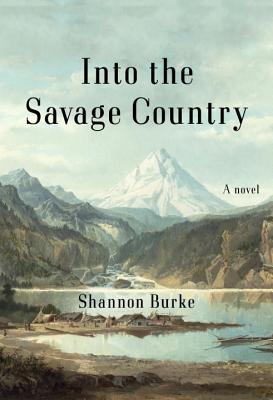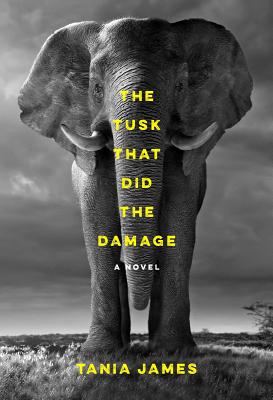This breathtaking adventure set in the American West of the 1820s is at once a tale of complex friendships, a love story, and a panoramic retelling of a crucial moment in American history.
When the young William Wyeth leaves St. Louis for a fur-trapping expedition, he nearly loses his life and quickly discovers the depth of loyalty among the men who must depend on one another to survive. While convalescing, he falls in love with proud Alene, a young widow who may or may not wait for him. And on a wildly risky expedition into Crow territory, Wyeth finds himself unwittingly at the center of a deadly boundary dispute among Native American tribes, the British government, and American trapping brigades. A classic adventure told with great suspense and literary flair, Into the Savage Country illuminates the ways in which extreme circumstances expose the truth about the natures of individual men and the surprising mechanics of their bravery, loyalty, and friendship.
When the young William Wyeth leaves St. Louis for a fur-trapping expedition, he nearly loses his life and quickly discovers the depth of loyalty among the men who must depend on one another to survive. While convalescing, he falls in love with proud Alene, a young widow who may or may not wait for him. And on a wildly risky expedition into Crow territory, Wyeth finds himself unwittingly at the center of a deadly boundary dispute among Native American tribes, the British government, and American trapping brigades. A classic adventure told with great suspense and literary flair, Into the Savage Country illuminates the ways in which extreme circumstances expose the truth about the natures of individual men and the surprising mechanics of their bravery, loyalty, and friendship.
The incomparable Jonathan Lethem returns with nine stories that demonstrate his mastery of the short form.
Jonathan Lethem’s third collection of stories uncovers a father’s nervous breakdown at SeaWorld in “Pending Vegan”; a foundling child rescued from the woods during a blizzard in “Traveler Home”; a political prisoner in a hole in a Brooklyn street in “Procedure in Plain Air”; and a crumbling, haunted “blog” on a seaside cliff in “The Dreaming Jaw, The Salivating Ear.” Each of these locates itself in Lethem-land, which can be discovered only by visiting. As in his celebrated novels, Lethem finds the uncanny lurking in the mundane, the irrational self-defeat seeping through our upstanding pursuits, and the tragic undertow of the absurd world(s) in which we live.
Jonathan Lethem’s third collection of stories uncovers a father’s nervous breakdown at SeaWorld in “Pending Vegan”; a foundling child rescued from the woods during a blizzard in “Traveler Home”; a political prisoner in a hole in a Brooklyn street in “Procedure in Plain Air”; and a crumbling, haunted “blog” on a seaside cliff in “The Dreaming Jaw, The Salivating Ear.” Each of these locates itself in Lethem-land, which can be discovered only by visiting. As in his celebrated novels, Lethem finds the uncanny lurking in the mundane, the irrational self-defeat seeping through our upstanding pursuits, and the tragic undertow of the absurd world(s) in which we live.
Devoted fans of Lethem will recognize familiar themes: the anxiety of influence taken to reductio ad absurdum in “The King of Sentences”; a hapless, horny outsider summoning bravado in “The Porn Critic”; characters from forgotten comics stranded on a desert island in “Their Back Pages.” As always in Lethem, humor and poignancy work in harmony, humans strive desperately for connection, words find themselves misaligned to deeds, and the sentences are glorious.
From one of the most ferociously brilliant and distinctive young voices in literary nonfiction: a debut shot through with violence, comedy, and feverish intensity that takes us on an odyssey into an American netherworld, exposing a raw personal journey along the way.
Locked in battle with both his adult appetites and his most private childhood demons, Kent Russell hungers for immersive experience and revelation, and his essays take us to society’s ragged edges, the junctures between savagery and civilization. He pitches a tent at an annual four-day music festival in Illinois, among the misunderstood, thick-as-thieves fans who self-identify as Juggalos. He treks to the end of the continent to visit a legendary hockey enforcer, the granddaddy of all tough guys, to see how he’s preparing for his last foe: obsolescence. He spends a long weekend getting drunk with a self-immunizer who is willing to prove he has conditioned his body to withstand the bites of the most venomous snakes. He insinuates himself with a modern-day Robinson Crusoe on a tiny atoll off the coast of Australia. He explores the Amish obsession with baseball, and his own obsession with horror, blood, and guts. And in the piercing interstitial meditations between these essays, Russell introduces us to his own raging and inimitable forebears.
I Am Sorry to Think I Have Raised a Timid Son, blistering and deeply personal, records Russell’s quest to understand, through his journalistic subjects, his own appetites and urges, his persistent alienation, and, above all, his knotty, volatile, vital relationship with his father. In a narrative that can be read as both a magnificent act of literary mythmaking and a howl of filial despair, Russell gives us a haunting and unforgettable portrait of an America—and a paradigm of American malehood—we have never before seen.
Locked in battle with both his adult appetites and his most private childhood demons, Kent Russell hungers for immersive experience and revelation, and his essays take us to society’s ragged edges, the junctures between savagery and civilization. He pitches a tent at an annual four-day music festival in Illinois, among the misunderstood, thick-as-thieves fans who self-identify as Juggalos. He treks to the end of the continent to visit a legendary hockey enforcer, the granddaddy of all tough guys, to see how he’s preparing for his last foe: obsolescence. He spends a long weekend getting drunk with a self-immunizer who is willing to prove he has conditioned his body to withstand the bites of the most venomous snakes. He insinuates himself with a modern-day Robinson Crusoe on a tiny atoll off the coast of Australia. He explores the Amish obsession with baseball, and his own obsession with horror, blood, and guts. And in the piercing interstitial meditations between these essays, Russell introduces us to his own raging and inimitable forebears.
I Am Sorry to Think I Have Raised a Timid Son, blistering and deeply personal, records Russell’s quest to understand, through his journalistic subjects, his own appetites and urges, his persistent alienation, and, above all, his knotty, volatile, vital relationship with his father. In a narrative that can be read as both a magnificent act of literary mythmaking and a howl of filial despair, Russell gives us a haunting and unforgettable portrait of an America—and a paradigm of American malehood—we have never before seen.
From the critically acclaimed author of Atlas of Unknowns and Aerogrammes, a tour de force set in South India that plumbs the moral complexities of the ivory trade through the eyes of a poacher, a documentary filmmaker, and, in a feat of audacious imagination, an infamous elephant known as the Gravedigger.
Orphaned by poachers as a calf and sold into a life of labor and exhibition, the Gravedigger breaks free of his chains and begins terrorizing the countryside, earning his name from the humans he kills and then tenderly buries. Manu, the studious younger son of a rice farmer, loses his cousin to the Gravedigger’s violence and is drawn, with his wayward brother Jayan, into the sordid, alluring world of poaching. Emma is a young American working on a documentary with her college best friend, who witnesses the porous boundary between conservation and corruption and finds herself in her own moral gray area: a risky affair with the veterinarian who is the film’s subject. As the novel hurtles toward its tragic climax, these three storylines fuse into a wrenching meditation on love and betrayal, duty and loyalty, and the vexed relationship between man and nature.
With lyricism and suspense, Tania James animates the rural landscapes where Western idealism clashes with local reality; where a farmer’s livelihood can be destroyed by a rampaging elephant; where men are driven to poaching. In James’ arrestingly beautiful prose, The Tusk That Did the Damage blends the mythical and the political to tell a wholly original, utterly contemporary story about the majestic animal, both god and menace, that has mesmerized us for centuries.
Orphaned by poachers as a calf and sold into a life of labor and exhibition, the Gravedigger breaks free of his chains and begins terrorizing the countryside, earning his name from the humans he kills and then tenderly buries. Manu, the studious younger son of a rice farmer, loses his cousin to the Gravedigger’s violence and is drawn, with his wayward brother Jayan, into the sordid, alluring world of poaching. Emma is a young American working on a documentary with her college best friend, who witnesses the porous boundary between conservation and corruption and finds herself in her own moral gray area: a risky affair with the veterinarian who is the film’s subject. As the novel hurtles toward its tragic climax, these three storylines fuse into a wrenching meditation on love and betrayal, duty and loyalty, and the vexed relationship between man and nature.
With lyricism and suspense, Tania James animates the rural landscapes where Western idealism clashes with local reality; where a farmer’s livelihood can be destroyed by a rampaging elephant; where men are driven to poaching. In James’ arrestingly beautiful prose, The Tusk That Did the Damage blends the mythical and the political to tell a wholly original, utterly contemporary story about the majestic animal, both god and menace, that has mesmerized us for centuries.




No comments:
Post a Comment